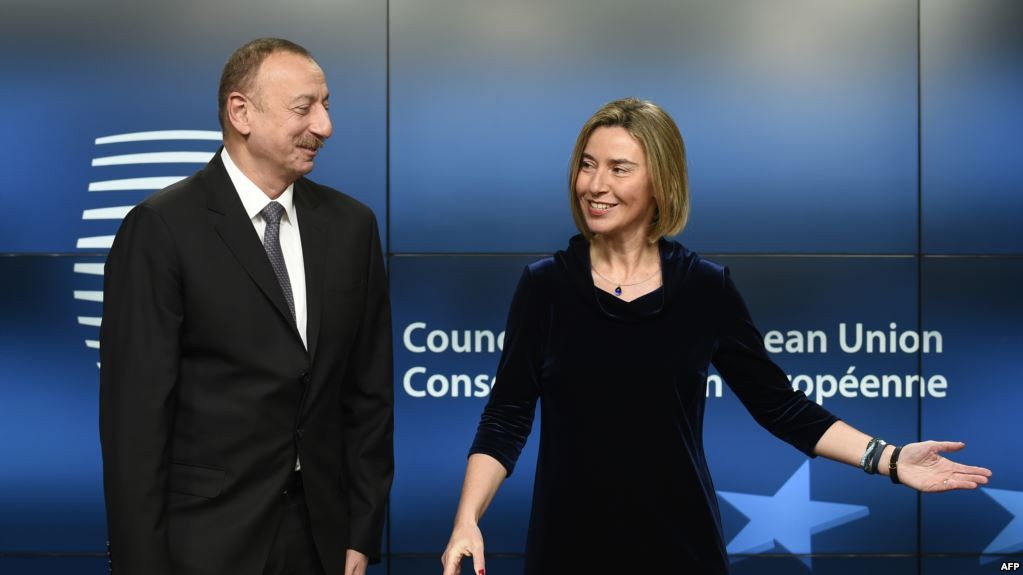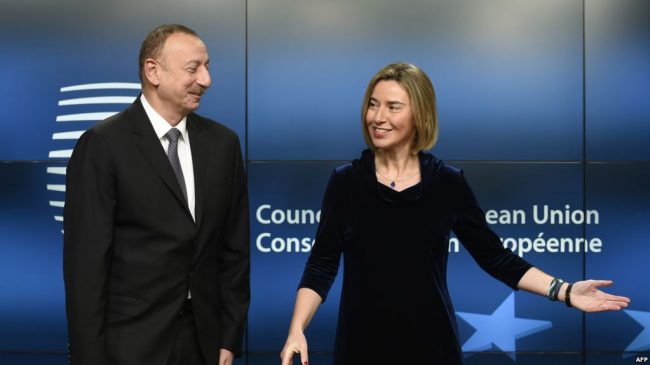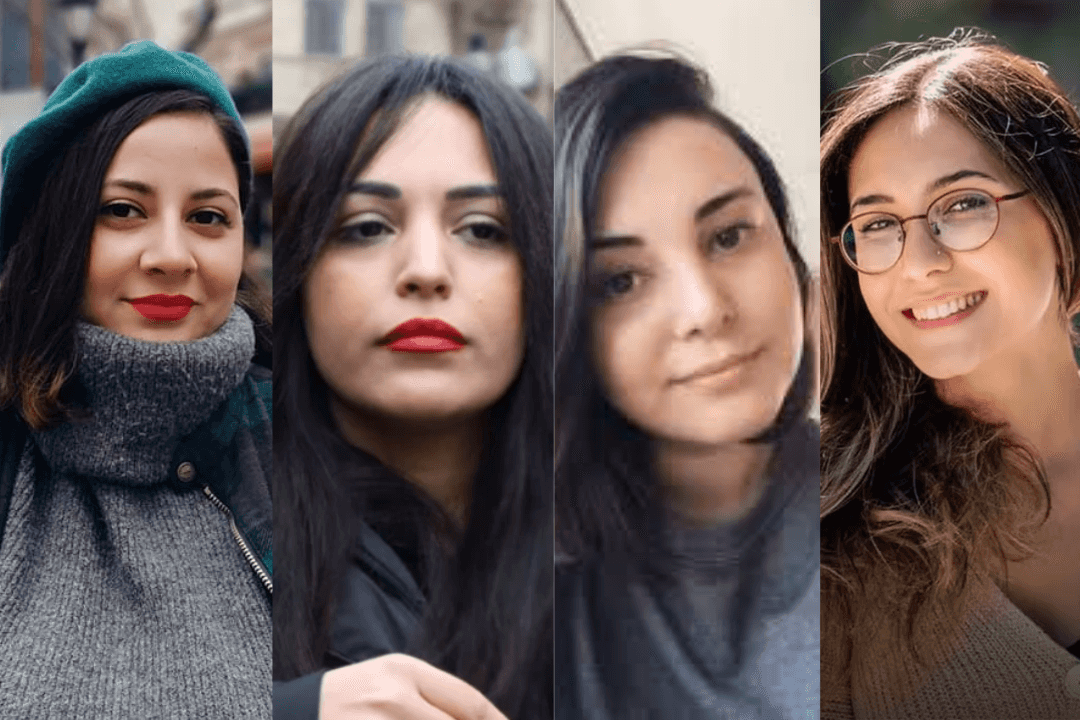

 The European Parliament has said it will not ratify a comprehensive agreement with Azerbaijan if the country ‘does not respect fundamental EU values and rights’. In Wednesday’s plenary session, parliament instructed the European Council, European Commission, and specifically EU foreign policy chief Federica Mogherini to prioritise fundamental freedoms and the fight against corruption in ongoing negotiations with the authorities in Baku.
The European Parliament has said it will not ratify a comprehensive agreement with Azerbaijan if the country ‘does not respect fundamental EU values and rights’. In Wednesday’s plenary session, parliament instructed the European Council, European Commission, and specifically EU foreign policy chief Federica Mogherini to prioritise fundamental freedoms and the fight against corruption in ongoing negotiations with the authorities in Baku.
In a press release following the plenary session, Parliament clarified the conditions for deeper cooperation between the EU and Azerbaijan.
‘No comprehensive agreement will be ratified with a country that does not respect fundamental EU values and rights, in particular with regard to the failure to implement decisions by the European Court of Human Rights and with respect to harassment, intimidation and persecution of human rights defenders, NGOs, opposition members, lawyers, journalists, and environmental activists’, reads the final version of the resolution.
[Read on OC Media: A government’s fear or bargaining chips — Political prisoners in Azerbaijan]
The resolution lists Ilgar Mammadov, Afgan Mukhtarli, Mehman Huseynov, Ilkin Rustamzada, Seymur Haziyev, Rashad Ramazanov, Elchin Ismayilli, Giyas Ibrahimov, Beyram Mammadov, Asif Yusifli, Fuad Gahramanli, Khadija Ismayilova and Intigam Aliyev as ‘emblematic cases’ of restricting political freedoms.
The resolution has included an amendment to the motion put forward by the Progressive Alliance of Socialists and Democrats (S&D) group, condemning the detention of Azerbaijani lawyer Emin Aslan and demanding Azerbaijan to end ‘the use of administrative detentions to silence government critics’.
[Read more about the detention of the lawyer on OC Media: Azerbaijani human rights lawyer Emin Aslan jailed for 30 days]
In reference to ‘economic crimes’ that Azerbaijan’s government must address, parliament mentioned the ‘Laundromat affair’ as the latest instance of state-supported money laundering. The Laundromat investigation, originally conducted by the Organised Crime and Corruption Reporting Project (OCCRP), revealed a $2.9 billion laundering scheme, allegedly operated by the Azerbaijani authorities and used to bribe high-level European figures.
In a special resolution in September 2017, MEPs condemned the alleged bribery scheme. Several days before the latest EU resolution, the Parliamentary Assembly of the Council of Europe (PACE) expelled 13 members for accepting gifts and bribes from the Azerbaijani government.
[Read more about the scandal on OC Media: EU Parliament calls for ‘Azerbaijani Laundromat’ investigation]
Fuad Isgandarov, the head of the delegation of the Republic of Azerbaijan to the EU, criticised the ‘preconditions’, noting that Azerbaijan also had ‘red lines’ but never highlighted them as such. Isgandarov said the ‘EU has, as a minimum, no less interest’ in negotiations on the agreement and that ‘any attempt to blackmail each other or undermine the negotiations will not succeed’.
Negotiations on the Comprehensive Agreement started in February 2017 after President Ilham Aliyev visited Brussels. The Agreement would be the next step in advancing the EU’s relations with Azerbaijan, superseding the bilateral Partnership and Cooperation Agreement signed in 1996.
Human right in Azerbaijan
International rights groups like Human Rights Watch, Freedom House, and Amnesty International have frequently condemned Azerbaijan’s human rights record.
In its 2018 report, Human Rights Watch said that during a continuing crackdown on independent voices, Azerbaijani authorities convicted at least 25 journalists and political activists last tear, while dozens more were detained or are under criminal investigation, face harassment and travel bans, or have fled.
Freedom House’s Nation in Transit 2018 report named Azerbaijan as one of ‘Eurasia’s entrenched autocracies — [where] personalised regimes keep a tight grip on power, suppressing political competition and targeting independent activists and journalists who dare to speak out’.









